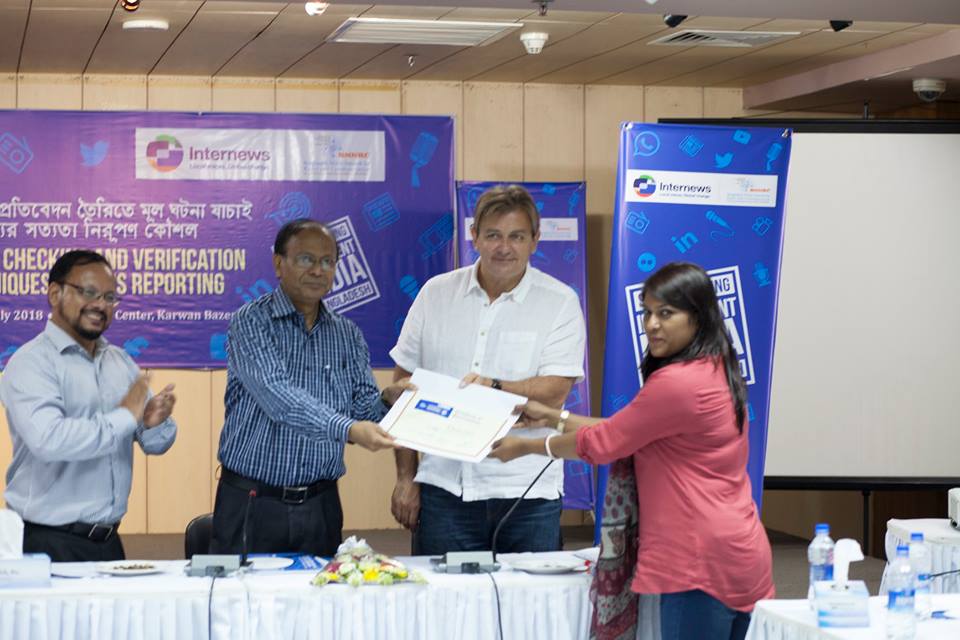Dhaka, July 15: A two-day workshop on ‘Fact Checking and Verification Techniques in News Reporting’ ended here today (Sunday) urging the participating journalists to be more responsible in writing news and earn credibility
in line with conflict sensitive Journalism in Bangladesh.
Organized by Bangladesh NGOs Network for Radio and Communication BNNRC with support from Internews Network, the two-day workshop was attended by 26
sr.journalists representing print, electronic and online news organizations based in the capital.
The day-two sessions highlighted topics like fighting fake news, circular reporting, verifying images and videos, analyzing common mistakes in journalism, being balanced and impartial and overcoming biases and using neutral language.
Speakers at the concluding session said that journalists cannot always guarantee presenting ‘genuine and original information’, but getting the facts right is essential in journalism.
They said that journalists must have independent voices and must not act on behalf of special interests whether political, corporate or cultural.
Guest of Honour, Shah Alamgir, Director General of the Press Institute of Bangladesh in his concluding remarks at the closing session, said ”There is a difference between the intentional mistake and unintentional mistake. You must practice honesty, accuracy, and fairness. These 3 principles will make your stories credible and have newsworthy merit.”
Alamgir also said, “If you must practice journalism you must be professional. You should be more responsible and be honest in checking your fact for credible news and earn the trust of your readers or audience.”
“The conflict sensitive journalism and digital safety and physical security are well-timed. We want to promote these issues and train more journalists on the topics which are very important today in the era of the fast-growing digital world,” Alamgir said.
Syed Zain Al Mahmood, Country Director of Internews addressing the closing session said, “You are very capable and show skeptical attitude. You don’t buy everything we say. You have a questioning mind which really inspires me.”
“Freedom of expression is important for a democratic environment. “Your eagerness to learn and participation has really inspired us and gives us new avenues to explore and design even better training programmes,” Zain remarked.
He thanked the government and all the stakeholders for their support for the series of workshops being held.
Chris Stephen, a Guardian journalist mostly covering war news who is also the author of ‘War Crime Justice’ book, Judgment Day, The Trial of Slobodan Milosevic, conducted the workshop.
He said that cultivating sources is a good way of verifying the fact. “Bangladesh journalism is very dynamic and information revolution is still going.”
AHM Bazlur Rahman, Chief Executive Officer (CEO) of BNNRC said, “The concept of internet governance is nothing new but we must be very cautious about the use of it. We must try to understand what the internet is. We have to understand the internet and interpret this for our professional needs. The Internet has reshaped our life and it is really something that we should value.”
